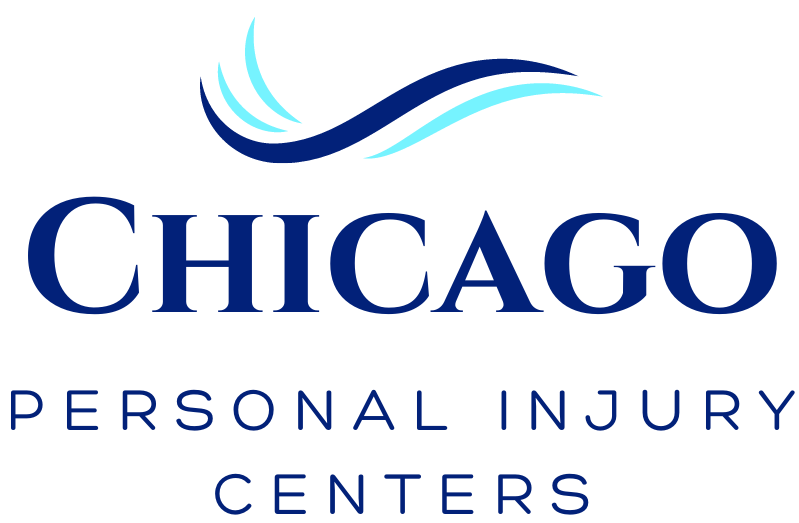At Chicago Personal Injury Centers, we understand the devastating effect pain can have on your recovery journey following an injury. Pain management plays a pivotal role not only in helping you heal but also in improving your overall quality of life.
Whether you are dealing with a car accident injury, a workplace injury, or any other form of personal injury, managing pain effectively can facilitate quicker recovery, increase your range of mobility, and prevent potential complications like chronic pain or disability.
If you’re experiencing chronic pain from a personal injury, the board-certified physicians at CPIC are ready to help. We will assess your condition, diagnose the root cause of your pain, and create a personalized treatment plan to guide you toward recovery.
Contact CPIC in Chicago, Illinois today to schedule a consultation and start your journey towards a pain-free life.
Importance of Pain Management in Recovery
After a personal injury, effective pain management is vital in supporting the healing and recovery process. Proper pain management helps you regain mobility, reduces discomfort, and allows you to focus on your recovery. For personal injury cases, managing pain also helps document the severity of your injury, making it an integral part of your case.
The purpose of this guide is to shed light on the various pain management strategies available to you as a personal injury patient. We’ll look at how these techniques can support your physical recovery and bolster your personal injury claim by helping to document pain and suffering.
Understanding Pain in Personal Injury Cases
In personal injury cases, pain can present in different forms including the following:
- Acute Pain: This is short-term pain that typically follows a sudden injury, such as a broken bone or sprained ligament. It often diminishes as the injury heals.
- Chronic Pain: This is long-lasting pain that persists for weeks, months, or even years after the injury. It could result from nerve damage or ongoing inflammation.
- Neuropathic Pain: This pain results from damage to the nervous system, often presenting as a shooting or burning sensation.
- Musculoskeletal Pain: This refers to pain affecting the muscles, bones, or ligaments and is common in injuries like whiplash or fractures.
- Soft Tissue Pain: Injuries to muscles, tendons, or ligaments can cause this type of pain, which often results from strains, sprains, or overuse injuries.
Impact of Pain on Daily Life
Pain following a personal injury can severely affect your ability to perform daily tasks. It can limit your mobility, interfere with your ability to work and hinder your enjoyment of life. For some, even simple actions like walking, lifting objects, or sitting for long periods can become daunting challenges.
Why Pain Management is Essential
Managing pain is critical not just for physical healing but for mental and emotional well-being too. Without effective pain control, injury victims often experience depression, anxiety, or frustration, which can slow the recovery process.
Furthermore, documenting pain through medical records and pain journals is crucial in personal injury claims, as it helps demonstrate the extent of your suffering.
Pain Management Strategies
Medications are a common starting point for managing pain. Options include:
- NSAIDs (Non-Steroidal Anti-Inflammatory Drugs): These reduce inflammation and are commonly used for musculoskeletal injuries.
- Muscle Relaxants: These can help alleviate muscle spasms associated with injuries like back strain.
- Opioids: Stronger medications, prescribed for severe pain, should be used under strict medical supervision to avoid dependency.
Physical Therapy and Rehabilitation
Physical therapy plays a key role in pain management. By improving mobility, strengthening injured muscles, and enhancing overall function, therapy can reduce pain and expedite recovery. Regular sessions also help prevent long-term damage, ensuring you regain full functionality after an injury.
Injections and Nerve Blocks
For more targeted pain relief, doctors may recommend injections such as corticosteroids or nerve blocks. These treatments can reduce inflammation in a specific area or block pain signals from reaching the brain, providing significant relief from chronic pain.
Alternative Therapies
In addition to traditional treatments, alternative therapies like acupuncture, massage therapy, and chiropractic care have proven to be effective for many patients. These therapies can complement medical treatments by relaxing muscles, reducing stress, and improving circulation, which aids in pain relief.
Psychological Support and Pain Management
Pain is not only physical but also emotional. Cognitive-behavioral therapy (CBT) and mindfulness practices can help individuals cope with the emotional toll of living with pain. Addressing the mental aspects of pain can enhance overall well-being and contribute to a faster recovery.
The Role of Pain Management in Personal Injury Claims
To ensure compensation, document everything and get in touch with a personal injury lawyer.
Documenting Pain and Suffering
Properly documenting your pain is essential when pursuing a personal injury claim. Medical records, pain journals, and expert testimony all provide crucial evidence of the suffering you’ve endured. Keeping a detailed record of how pain affects your daily life strengthens your case and helps substantiate your claim for damages.
Linking Pain to the Injury
For your personal injury claim to succeed, it’s necessary to establish a clear link between the injury and the pain you’re experiencing. Medical documentation that tracks your pain from the moment of the injury helps create this connection and demonstrates the ongoing impact the injury has on your life.
Challenges in Proving Pain
Pain is inherently subjective, which can make it challenging to prove in court. Insurance companies and courts may sometimes be skeptical of claims of severe pain. Therefore, it’s essential to have medical experts who can testify to the validity of your pain and how it relates to the injury.
Impact on Compensation
Effective pain management and thorough documentation can significantly impact the compensation you receive. Pain and suffering damages are often awarded in addition to economic damages, so providing a clear, well-documented history of your pain can result in higher compensation.
Working with Pain Management Specialists
When recovering from a personal injury, working with a pain management specialist can make all the difference. These experts have the training and experience to treat pain resulting from accidents, making sure you receive the best care for your specific injury.
Comprehensive Treatment Plans
Pain management specialists create individualized treatment plans based on your unique treatment needs. This personalized approach helps address both the physical and psychological aspects of pain, ensuring you recover as fully as possible.
Collaboration with Legal Professionals
Your pain management team can work closely with your personal injury attorney to ensure your pain and suffering are accurately documented in your case. This collaboration is essential to building a strong case and securing the compensation you deserve.
Get Effective Pain Management for Your Injuries
Pain management is an essential part of recovery following a personal injury. Addressing both physical and emotional pain not only improves your quality of life but also strengthens your personal injury claim and gives you better chances for higher compensation.
If you’re struggling with pain after an injury, don’t hesitate to seek professional help. Our team at Chicago Personal Injury Centers is here to provide comprehensive pain management services to help you recover and move forward with your life.
Contact us today at (773) 482-5800 to schedule a consultation and learn more about your pain management options. If you’re considering pursuing a personal injury claim in Chicago, we can also connect you with trusted legal professionals to discuss your case and ensure your pain and suffering are represented fully.

